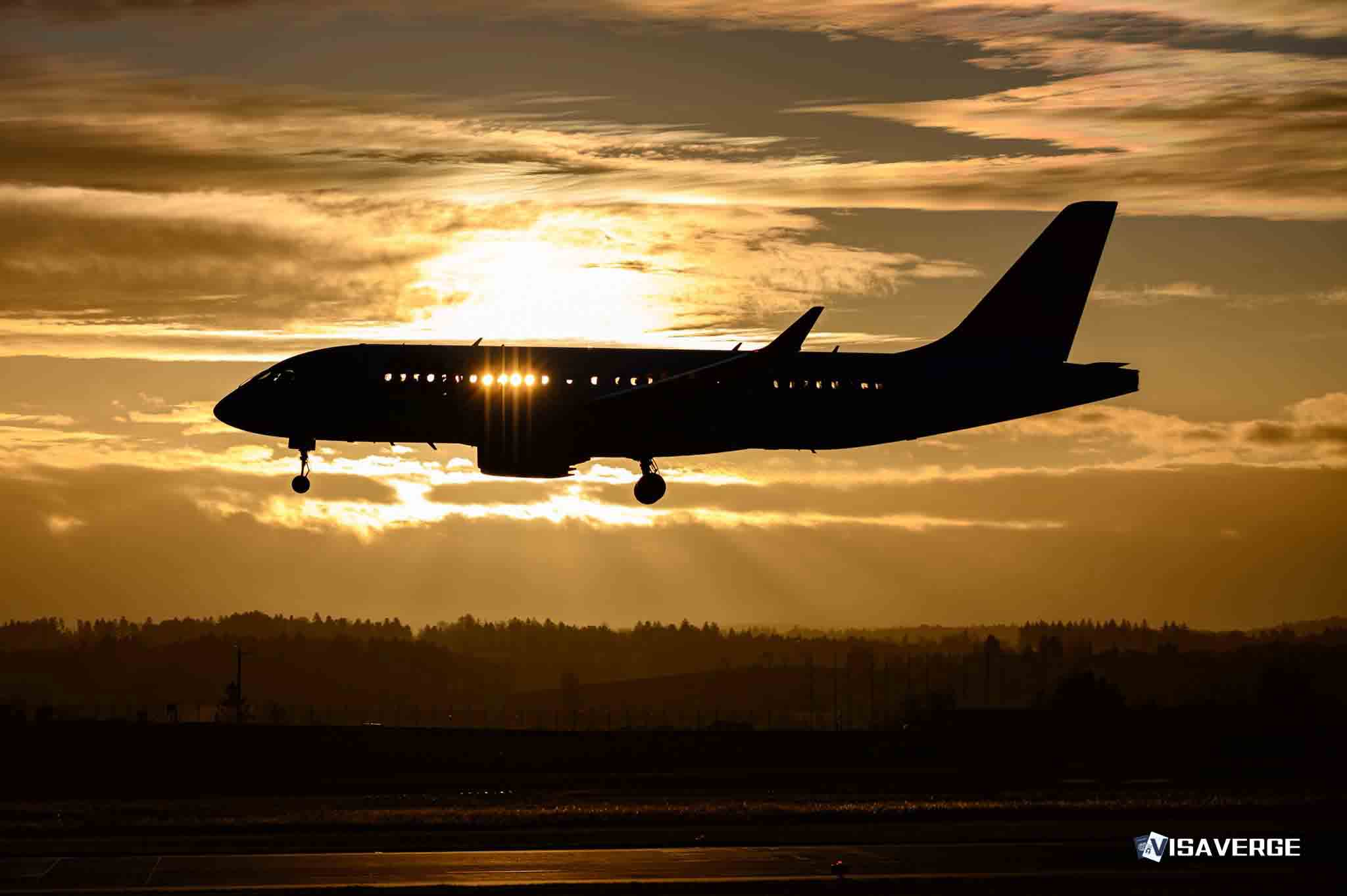Key Takeaways
• Azerbaijan Airlines Flight 8243 was shot down by a Russian missile near Russian airspace on December 25, 2024.
• Leaked audio and military documents from July 2025 confirm Russian Pantsir-S1 missile system deliberately targeted the plane.
• Kazakhstan leads the investigation; Azerbaijan demands apology, compensation, while Russia refuses legal responsibility.
On December 25, 2024, Azerbaijan Airlines Flight 8243, an Embraer 190 carrying 67 people, was shot down as it approached Russian airspace. The crash, which killed 38 passengers and crew, has since become a major international incident, drawing in governments, aviation authorities, and legal experts. As of July 1, 2025, the most recent and reliable evidence—including leaked audio recordings and internal Russian military documents—strongly suggests that Russian air defense forces deliberately targeted the plane with a missile strike. This event has not only caused deep grief for the families involved but has also raised serious questions about the safety of flying over conflict zones, the responsibilities of governments, and the rights of victims under international law.
What Happened to Azerbaijan Airlines Flight 8243?

Azerbaijan Airlines Flight 8243 was on a scheduled route from Baku, Azerbaijan 🇦🇿, to Grozny, Russia 🇷🇺. As the plane neared Russian airspace, it was diverted to Aktau, Kazakhstan 🇰🇿, but never made it. Instead, the aircraft was struck by a missile and crashed, killing 38 of the 67 people on board. The survivors, 29 in total, suffered various injuries.
The incident quickly drew attention from the international community, not only because of the tragic loss of life but also due to the circumstances surrounding the crash. Early reports hinted at a possible missile strike, but it was only in the following months that evidence began to mount, pointing directly to Russian military involvement.
New Evidence Points to Russian Military Involvement
In June and July 2025, Azerbaijani journalists released new audio and internal documents, reportedly from a Russian air defense officer. These materials, sent anonymously to the news outlet Minval Politika, include a statement from an officer identified as Captain Dmytro Pa… and audio/video files. The officer describes receiving coordinates and a phone order to destroy the target, which was later confirmed to be Azerbaijan Airlines Flight 8243. The files appear to confirm that a deliberate missile strike brought down the plane as it approached Russian airspace.
According to analysis by VisaVerge.com, these new leaks add to a growing body of evidence that Russian air defense forces, using a Pantsir-S1 missile system, were responsible for the attack. The Pantsir-S1, a mobile air defense system, had reportedly been brought from Syria to Russia and was operated by a team whose identities have since been uncovered by Russian investigators.
Investigations and Official Responses
Kazakhstan Leads the Official Probe
Kazakhstan 🇰🇿, where the crash occurred, is leading the official investigation. However, Kazakh authorities have not directly blamed Russia, likely due to political and economic ties between the two countries. The investigation is ongoing, and Kazakhstan’s final report is still pending.
Azerbaijan’s Demands and Accusations
Azerbaijan 🇦🇿, led by President Ilham Aliyev, has taken a much stronger stance. President Aliyev has openly blamed Russian air defense for the downing of Flight 8243. He has demanded:
- A formal apology from Russia 🇷🇺
- An admission of guilt
- Punishment for those responsible
- Full compensation for victims’ families
Azerbaijan also accuses Russia of trying to cover up the incident and refusing to allow the damaged plane to land at Russian airports, which could have saved more lives.
Russia’s Position
President Vladimir Putin has publicly apologized to President Aliyev, calling the event a “tragic incident.” However, Russia 🇷🇺 has not admitted direct responsibility. The Kremlin insists that the investigation is ongoing and continues to suggest alternative explanations for the crash, such as technical failure or pilot error.
International Legal Framework
The Montreal Convention of 1999 governs liability and compensation for international air crashes. This treaty allows victims’ families to pursue claims in the country where the crash happened, the airline’s home country, or the country where the passenger lived. This legal framework is now central to the ongoing efforts by families to seek justice and compensation.
For more information about the Montreal Convention and international aviation law, readers can visit the International Civil Aviation Organization (ICAO) official website.
Technical Evidence: Missile Strike and Electronic Warfare
Missile Strike Confirmed
Multiple sources, including preliminary investigations by Kazakhstan and Azerbaijan, confirm that Flight 8243 was hit by a missile. The missile, identified as a Pantsir-S1, caused shrapnel damage, especially to the tail and hydraulic systems of the plane. This damage led to a loss of control and, ultimately, the crash.
Electronic Warfare Activity
As the plane approached Grozny, its GPS and communications systems were jammed. This kind of electronic warfare is often used by military forces to block signals and prevent communication. The jamming made it even harder for the pilots to respond to the emergency.
Flight Recorder and Conflicting Reports
A transcript released by Russian media claims the pilots thought they had hit birds and suffered an oxygen tank explosion. However, independent experts and physical evidence point to missile damage as the real cause. The transcript also mentions a loss of hydraulics and control surfaces, which matches what outside analysts have found.
Impact on Victims and Families
Compensation and Insurance
- Injured survivors receive 20,000 Azerbaijani manats each.
- Families of the deceased receive 40,000 Azerbaijani manats.
- Additional insurance payouts are being processed, and Russian insurer AlfaStrakhovanie completed the full hull insurance payment by February 2025.
Legal Action
Families are pursuing compensation under the Montreal Convention. The choice of where to file a claim is important because different countries have different rules about compensation and what kinds of damages are recognized. Some countries may offer higher payouts or recognize emotional suffering, while others may not.
Practical Steps for Families
- Seek legal counsel specializing in international aviation law.
- File claims in the most favorable jurisdiction (Azerbaijan, Russia, Kazakhstan, or the victim’s home country).
- Collect all relevant documents, including death certificates, medical reports, and proof of relationship to the victim.
Aviation Safety and Policy Changes
Renewed Warnings for Civilian Flights
The European Union Aviation Safety Agency (EASA) has issued new warnings about the risks of flying over Russian airspace, especially during times of military activity. Other aviation authorities have followed suit, advising airlines to avoid certain routes or altitudes.
Changes in Overflight Policies
Airlines and insurance companies are now reviewing their policies for flights over conflict zones. Some airlines have already changed their routes to avoid Russian airspace, even if it means longer flights and higher costs.
Implications for the Aviation Industry
- Increased insurance premiums for flights over risky areas
- More careful route planning by airlines
- Greater pressure on governments to provide clear information about military activity that could threaten civilian flights
Diplomatic Fallout and International Tensions
Azerbaijan–Russia Relations
Relations between Azerbaijan 🇦🇿 and Russia 🇷🇺 have worsened since the crash. Azerbaijan has canceled high-level visits and accused Russia of cyberattacks and political retaliation. The country has also threatened to take the case to international courts if Russia does not accept responsibility and provide full compensation.
Kazakhstan’s Delicate Position
Kazakhstan 🇰🇿 is leading the official investigation but has avoided blaming Russia directly. This is likely because Kazakhstan relies on Russia for economic and security reasons. The country is trying to balance its responsibilities as the lead investigator with its need to maintain good relations with its powerful neighbor.
International Legal Action
Azerbaijan is preparing to bring the case to international courts if Russia does not meet its demands. This could include cases at the International Court of Justice or other international legal bodies. The outcome of these cases could set important precedents for how similar incidents are handled in the future.
Multiple Perspectives on the Incident
Azerbaijan’s View
Azerbaijan demands full accountability and compensation. The government accuses Russia of a cover-up and is ready to escalate the dispute to international legal forums if necessary.
Russia’s View
Russia admits that a “tragic incident” occurred and has apologized, but it does not accept legal responsibility. The Kremlin continues to suggest other possible causes and insists that the investigation is not yet complete.
Kazakhstan’s Role
Kazakhstan leads the official investigation but avoids direct blame, likely due to its close ties with Russia.
International Experts
Independent aviation and military experts, including those from the United States 🇺🇸 and France 🇫🇷, agree that missile damage is the most likely cause. Their conclusions are based on video evidence, physical damage to the plane, and the pattern of injuries.
What Happens Next?
Pending Investigations
Kazakhstan’s final report is still pending. If the new audio and documents released in July 2025 are authenticated, they could have a major impact on the investigation’s outcome.
Possible International Litigation
If Russia does not accept responsibility and provide compensation, Azerbaijan is likely to take the case to international courts. This could lead to years of legal battles and further strain relations between the countries involved.
Changes in Aviation Policy
The downing of Azerbaijan Airlines Flight 8243 is likely to influence future policies for flights over conflict zones. Airlines, insurance companies, and governments will need to work together to make sure that civilian flights are as safe as possible, even in areas where military activity is high.
Practical Guidance for Travelers and Families
- Check airline safety bulletins before booking flights that cross conflict zones.
- Understand your rights under the Montreal Convention if you or a loved one is affected by an international air crash.
- Contact your country’s embassy for assistance if you are involved in or affected by such an incident.
- Seek legal advice from experts in international aviation law if you need to file a claim.
Official Resources
- Azerbaijan Airlines (AZAL): For updates and press releases, visit the official AZAL website.
- Kazakhstan Civil Aviation Committee: For investigation updates, see the official government page.
- European Union Aviation Safety Agency (EASA): For safety bulletins and travel advisories, visit the EASA website.
Conclusion
The downing of Azerbaijan Airlines Flight 8243 by a Russian air defense missile has had far-reaching effects, from the personal tragedies of the victims’ families to major changes in international aviation policy and diplomatic relations. As reported by VisaVerge.com, the latest evidence—including leaked audio and internal Russian military documents—strongly supports the conclusion that Russian forces were directly involved in the missile strike. The incident has led to renewed warnings about the dangers of flying over conflict zones, ongoing legal battles for compensation, and a push for greater accountability from governments and military forces.
As investigations continue and new evidence emerges, the world will be watching to see how the affected countries respond, how international law is applied, and what changes are made to protect civilian flights in the future. For now, the families of those lost on Flight 8243 continue to seek justice, and the aviation industry faces tough questions about how to keep passengers safe in an increasingly complex world.
Learn Today
Azerbaijan Airlines Flight 8243 → A commercial flight shot down near Russian airspace causing 38 deaths in December 2024.
Pantsir-S1 → A Russian mobile air defense missile system used to strike Flight 8243 near Russian airspace.
Montreal Convention → International treaty outlining liability and compensation rules for victims of global air crashes.
Electronic warfare → Military techniques used to jam or disrupt aircraft communication and GPS systems.
International Court of Justice → A global judicial body where Azerbaijan may bring legal claims against Russia.
This Article in a Nutshell
On December 25, 2024, Azerbaijan Airlines Flight 8243 was deliberately shot down by Russian air defense forces using a Pantsir-S1 missile, killing 38 aboard. Evidence leaked in 2025 confirms military involvement, sparking international investigations, diplomatic tensions, and new safety warnings for civilian flights over conflict zones worldwide.
— By VisaVerge.com






